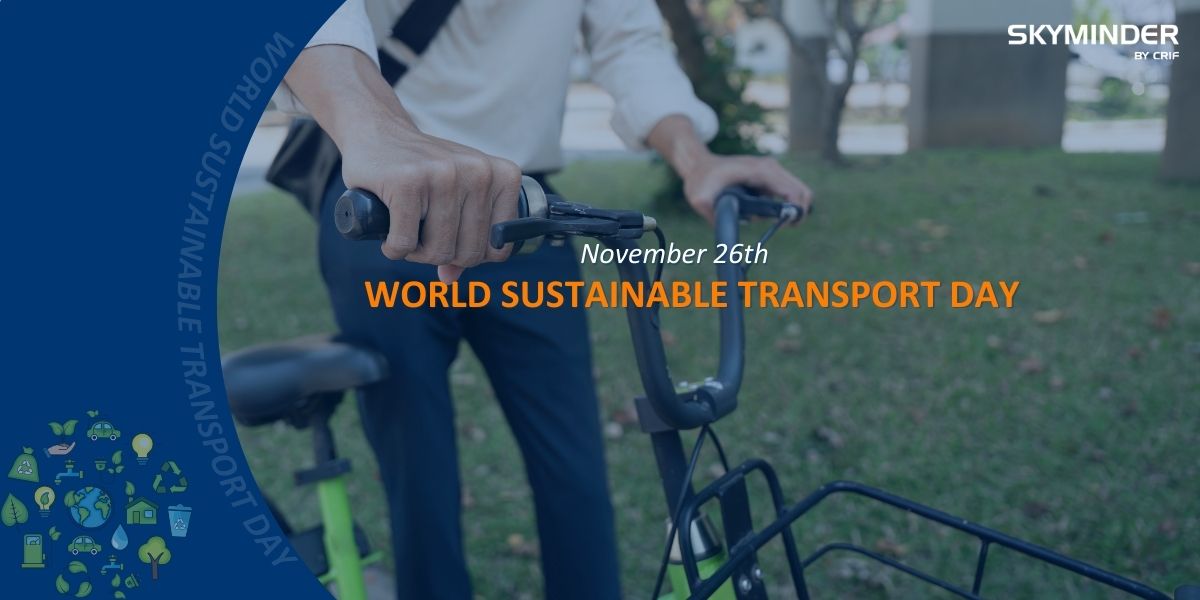WORLD SUSTAINABLE TRANSPORT DAY: MOVING TOWARDS A GREENER FUTURE
Every year on November 26th, the world marks World Sustainable Transport Day, which is more than a symbolic occasion, but a call to action to rethink how mobility can serve people and the planet. Transport is the backbone of economies and societies, but it is also one of the largest contributors to greenhouse gas emissions. Recognizing this, the United Nations established the day to raise awareness and mobilize governments, businesses, and individuals to build cleaner, safer, and more inclusive transport systems.
HISTORICAL BACKGROUND
The observance of 26 November was proclaimed by the UN General Assembly in 2023, acknowledging the vital role of sustainable transport in achieving the 2030 Agenda for Sustainable Development. The resolution highlights the need for integrated intermodal systems (roads, railways, waterways, airways, and ports) that are resilient, energy-efficient, and environmentally friendly. It also emphasizes the importance of international cooperation to ensure transport contributes to economic growth, social welfare, and climate action.
Transport has long been recognized as both a driver of progress and a source of environmental strain. The sector accounts for about one-quarter of global greenhouse gas emissions, with 91% of motorized transport still powered by fossil fuels. This dual role of enabling connectivity while fueling climate change is why the UN chose to dedicate a day to sustainable transport. By doing so, it places mobility at the heart of the global sustainability agenda, alongside poverty reduction, gender equality, and climate resilience.
The historical roots of this observance also reflect the growing urgency of climate action. For decades, international conferences have highlighted transport as a critical sector for emissions reduction. From the Kyoto Protocol to the Paris Agreement, mobility has been identified as both a challenge and an opportunity. By establishing a dedicated day, the UN signals that transport is not just a technical issue but a global priority requiring collective responsibility.

PATHWAYS TO CHANGE
World Sustainable Transport Day is not only about policy; it is about people and choices. Everyday actions can make a measurable difference: shifting from cars to public transport can cut up to 2.2 tons of carbon emissions per person annually, while living car-free reduces footprints by as much as 3.6 tons. Even switching to electric vehicles saves around 2 tons per year.
Advice for reducing emissions is clear:
- Opt for public transport, cycling, or walking whenever possible.
- Support the transition to electric fleets and renewable energy initiatives.
- Encourage intermodal logistics to optimize efficiency in trade and supply chains.
- Raise awareness in communities about the benefits of sustainable mobility.
The UN’s ActNow campaign complements these efforts with ten everyday actions for a healthier planet. Walking, biking, or taking public transport is one of the most impactful, but the campaign also highlights other lifestyle changes: saving energy at home, switching to renewable sources, reducing food waste, eating more plant-based meals, repairing and reusing goods, and even making financial choices that support sustainable businesses. Each of these actions reduces emissions and builds momentum for systemic change.
UN Secretary-General António Guterres has called transport both the “world’s circulatory system” and a driver of climate chaos. His appeal is urgent: break dependence on fossil fuels, invest in electric vehicles, renewable aviation fuels, and low-carbon public transport, and create incentives that make sustainable choices accessible to all.

CONCLUSIONS
World Sustainable Transport Day reminds us that every journey counts. By honoring the UN’s vision and committing to cleaner mobility, societies can move closer to a future where transport drives progress without driving climate change. Combined with the ActNow campaign’s everyday actions, this observance shows that systemic solutions and personal choices together can accelerate the transition to a greener, fairer, and more connected world.
Source: List of International Days and Weeks | United Nations

